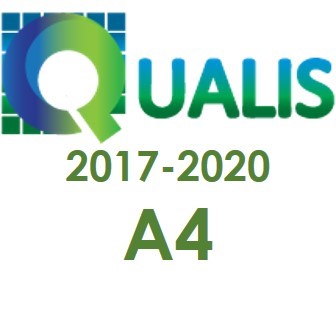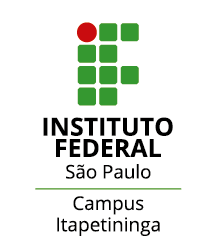Aprendizado relacionado ao trabalho como metodologia para a formação de professores
Palavras-chave:
Educação inicial de professores. Aprendizagem. Aprendizado relacionado ao trabalho.Resumo
A formação de professores que são capazes não só de pensar e agir, e vice-versa, mas também de
julgar e redesenhar seus próprios atos é cada vez mais crucial diante dos novos desafios que enfrentamos no
contexto global: por essas razões, parece razoável configure o período de formação inicial de professores em
torno do paradigma do aprendizado, estruturalmente fundamentado na aprendizagem baseada no trabalho. Só
assim pode superar o paradigma separativo que coloca em primeiro lugar a teoria e a reflexão e, em um segundo
momento separado, a prática e a ação, promovendo a recomposição circular entre a teoria e a prática, sem reduzir
o aprendizado a um mero “estágio”.
Downloads
Referências
Alexander R. & Craft M. & James L. (eds.). (1984). Change in Teacher Education: Context and Provision Since Robbin, London: Holt, Rinehart and Winston, 1984.
Amenta G. (2013). Insegnamento. In Bertagna G. & Triani P. Dizionario di Didattica. Brescia: La Scuola.
Arendt H. (1978). The Life of the Mind. Trad. it. La vita della mente. Bologna: il Mulino, 1987.
Are Trippestad, T. (2014). The rhetoric of experience and “The Importance of Teaching”, pp. 63-77, in V. Ellis, J. Orchard (eds.), Learning Teaching for Experience, New York (USA): Bloomsbury.
Ausubel, D.P. (1968). Educational Psychology: A Cognitive View. New York: Holt, Rinehart & Winston.
Baldacci, M. (2013). Introduzione. In M. Baldacci (Ed.), La formazione dei docenti in Europa. Milano: Mondadori.
Bauman, Z. (2014). La società dell’incertezza. Bologna: il Mulino.
Bell, A. (1981). Structure, knowledge and social relationship in teacher education, British Journal of Sociology of Education, 2, 1, pp. 21-32.
Benasayag M. & Schmit G. (2003). Les passions tristes, Souffrance psyquiche et rise sociale Trad.it. L’epoca delle passioni tristi, Milano: Feltrinelli, 2013, ed. digit.
Bertagna G. (Ed.) (2004). Alternanza scuola lavoro. Ipotesi, modelli, strumenti dopo la riforma Moratti. Milano: Franco Angeli.
Bertagna G. & Xodo C. (Eds.) (2011). Le competenze dell’insegnare. Studi e ricerche sulle competenze attese, dichiarate e percepite, Soveria Mannelli: Rubbettino Università.
Bertagna, G. (2015). Scuola: uno sguardo da lontano. Nuova Secondaria, 2.
Bertagna, G. (2016a). Dall’esperienza alla ragione, e viceversa. L’alternanza formativa come metodologia dell’insegnamento. Ricerche di Psicologia, 3, 319-360.
Bertagna, G. (2016b). Ad alternanza continua. Nuova Secondaria, 10.
Bertagna G. (2016c). Imparare è insegnare, insegnare è imparare. Nuova Secondaria, 7.
Benton, P. (Ed.). (1990). The Oxford internship scheme: integration and partnership in initial teacher education, London: Calouste Gulbenkian Foundation.
Bird, L., Moon, B., Storey, A. (2013). The context for teacher education in developing countries, in R. Moon (Ed.), Teacher Education and the Challenge of Development: A global Analysis. London: Routledge, pp. 19-31.
Bloom B. (1976). Human characteristics and School learning. Trad. it. Caratteristiche umane e apprendimento scolastico. Roma: Armando, 2006.
Bordieu P. (1994). Raison Pratiques. Sur la théorie de l’action. Paris: Seuil.
Brezinka, W. (1992). Obiettivi e limiti dell’educazione. Trad. it. Roma: Armando, 2002.
Brezinka, W. (2003). Analisi e valutazione di un fine educativo. Trad. it. Milano: Vita e Pensiero, 2013.
Casaschi C. (2016). La circolarità pratico-riflessiva nell’esperienza dei tirocini curriculari universitari. Ricerche di Psicologia. 3 pp. 369-377.
Cochran-Smith, M. (2016). Foreword, in Aa.Vv., Teacher education in times of change. Bristol, UK: Policy Press.
Craft, M. (1984). Change and Continuity in Teacher Education, pp. 332–341. In Alexander R. & Craft M. & James L. (eds.). Change in Teacher Education: Context and Provision Since Robbin, London: Holt, Rinehart and Winston.
Croce, B. (1918). Contributo alla critica di me stesso. Napoli.
Darling-Hammond, L. & Lieberman A. (2012). Teacher Education around the World. London: Routledge.
Decreto Ministero dell’Istruzione, dell’Università e della Ricerca, 10 settembre 2010, n. 249.
Regolamento concernente: Definizione della disciplina dei requisiti e delle modalità della formazione iniziale degli insegnanti della scuola dell’infanzia, della scuola primaria e della scuola secondaria di primo e secondo grado, ai sensi dell’articolo 2, comma 416, della legge 24
dicembre 2007, n. 244.
Decroly O. (1925). La Fonction de globalisation et l'enseignement. Bulletin de la Société française de pédagogie. Paris.
Department for Education and Science (DES). (1984). Initial teacher training: approval of courses, Circular 3/84, London: HMSO.
Department for Education and Science (DES). (1989). Initial teacher training: approval of courses, Circular 24/89, London: HMSO.
Department for Education and Science (DES). (1983). White Paper – Teaching quality, London: HMSO.
Department for Education (DfE). (1992). The New Requirements for Initial Teacher Training (Circular 9/1992), London.
Department for Education (DfE). (1993). The Initial Training of Primary School Teachers: New Criteria for Courses (Circular 14/93), London.
Department for Education (DfE). (2010). The importance of teaching. The schools White Paper 2010. London (www.education.gov.uk).
Department for Education (DfE). (2011a). Training our next generation of outstanding teachers. An improvement strategy for discussion, London.
Department for Education (DfE). (2011b). Training our next generation of outstanding teachers. An implementation strategy, London.
Department for Education (DfE). (2012). Education Committee. First Special report. Great teachers: attracting, training and retaining the best teachers. Government response to the Committee’s ninth Report of session 2010-2012 Education Committee, London.
Devos A. (2010). New teachers, mentoring and the discursive formation of professional identity. Teaching and Teacher Education, 26, 5, July 2010, pp. 1219-1223.
di Sales F. (San) (1619). Filotea. Introduzione alla vita devota. Roma: Città Nuova.
Ellis, V. & Orchard, J. (2014). Learning teaching “from experience”: Towards a history of the idea, pp. 1-17, in Id. (eds.), Learning Teaching for Experience, New York (USA): Bloomsbury.
European Commission. (2016). Commission Staff Working Document, Country Report Italy 2016
including an In-Depth Review on the prevention and correction of macroeconomic imbalances, SWD(2016) 81 final, Bruxelles.
Fabbri L., Striano M. & Melacarne C. (2008). L’insegnate riflessivo. Coltivazione e trasformazione delle pratiche professionali. Milano: Franco Angeli.
Furlong, J. & Barton, L. & Miles, S. & Whiting, C. & Whitty, G. (2000). Teacher education in transition: Re-forming professionalism?. Buckingham: Open University Press.
Furlong, J., Cochran-Smith, M., Brennan, M. (eds.). (2009). Policy and Politics in Teacher Education, New York (USA): Routledge.
Gagné R. (1971). Learning hierarchies. New York: Prentice Hall.
Gove, M. (2010). Address to the National College’s Annual Conference in Birmingham, 16 June 2010.
Hopkins, D. (2013). Exploding the myths of schools reform. ACER Press, Victoria.
House of Commons (HoC). (2012). Great teachers: attracting, training and retaining the best teachers, London.
Houston R.A. (1996). In Europa tutti vanno a scuola. In Storia d’Europa. Torino: Einaudi, vol. 5, pp. 1167-1203.
Körkkö M., Kyrö-Ämmälaä O. & Turunen T. (2016). Professional development through reflection in teacher education. Teaching and Teacher Education. 55 pp. 198-206.
Jones, K. (2016), Education in Britain. 1944 to the Present, Cambridge: Polity Press, Second Edition.
Lori Sanfilippo R. & Rigon A. (Eds.) (2014). I giovani nel Medioevo. Ideali e pratiche di vita.
Roma: Istituto Storico Italiano per il Medio Evo.
Magni, F. (2016). L’alternanza formativa e l’“agire in modo riflessivo” nella formazione iniziale dei docenti. Ricerche di Psicologia, 3, 361-368.
Malloch, M. & Cairns, L. & Evans, K. & O’Connor, B. N (eds.). (2011). The SAGE Handbook of Workplace Learning, Sage Publications Ltd, London.
Mathewson, D. & Reid, J. (2017). (Re)turning to pracrice in teacher education: embodied knowledge in learning to teach. Teachers and Teaching, 23, 1, 42-58.
Mattsson, M., Eilertsen, T. V., Rorrison, D. (eds.) (2011). A Practicum Turn in Teacher Education, Rotterdam: Sense publishers.
McNair, A. (1944). Teachers and youth leaders (The McNair Report), London: HMSO.
Mc Namara, O. & Murrray, J. & Jones, M. (eds.). (2014). Professional Learning and Development in Schools and Higher Education. Workplace Learning in Teacher Education. International Practice and Policy. Dordrecht: Springer.
Menter, I. (2016), Introduction, in AA.VV., Teacher education in times of change, Bristol, UK: Policy Press.
Merizow J. (1991). Transformative Dimensions of Adult Learning. San Francisco: Jossey-Bass.
Mincu, M.E. (2016) Formazione docenti inglesi. Il percorso abilitante School Direct. Nuova Secondaria, 1, 25-28.
Murray, J. & Mutton, T. (2016). Teacher Education in England; Change in Abundance, Continuities in Question, pp. 57–74, in Teacher Education in Times of Change, edited by Teacher Education Group, Bristol: Policy Press.
Mutton, T., Butcher, J. (2008). We will take them from anywhere: schools working within multiple initial teacher training partnerships. Journal of Education for Teaching: International Research and Pedagogy, 34, 1 pp. 45–62.
Mutton, T. & Burn, K. & Menter, I. (2017). Deconstructing the Carter Review: competing conceptions of quality in England’s ‘school-led’ system of initial teacher education. Journal of Education Policy, 32, 1, pp. 14-33.
OECD, (2015a). Improving Schools in Sweden: An OECD Perspective. Paris: OECD Publishing.
European Commission. (2013). Education and Training Monitor. Luxembourg: Publications Office of the European Union.
OECD, (2015b). Education Policy Outlook 2015: Making Reforms Happen. Paris: OECD Publishing.
European Commission. (2013). Education and Training Monitor. Luxembourg: Publications Office of the European Union.
OECD, TALIS (2016). 2013 Result; An International Perspective on Teaching and Learning, Paris: OECD Publishing.
Ofsted (2010). The annual report of Her Majesty’s Chief Inspector of Education, Children’s Services and Skills 2009/2010.
Ong W.J. (1982) Orality and Literacy: The Technologizing of the Word. Trad. it. Oralità e scrittura. Le tecnologie della parola. Bologna: Il Mulino 2014.
Plato. Eutidemo e Protagora. Cap IX; X.
Paparella N. (1988). Pedagogia dell’apprendimento. La Scuola, Brescia.
Pareyson L. (2005). Iniziativa e libertà. Milano: Mursia.
Pepper S. (1970). World Hypotheses. A Study on Evidence. Berkeley: University of California Press.
Pestalozzi J.H. (1801). Wie Gertrud ihre kinder lehrt. Trad. it. Come Geltrude istruisce i suoi figli.
La Nuova Italia, Firenze 1929.
Preston C. (2017). University-Based Teacher Preparation and Middle Grades Teacher Effectiveness.
Journal of Teacher Education, 68 1, pp. 102-116.
Reboul O. (1983). Qu’est-ce qu’apprendre? Pour une philosophie de l’inseignement. Trad. it.,Apprendimento, insegnamento e competenza. Per una nuova filosofia dell’educazione. Roma: Armando 1995.
Recalcati M. (2014). L’ora di lezione. Torino: Einaudi.
Recommendation of the European Parliament and of the Council of 18 december 2006 on key competences for lifelong learning (2006/962/ec).
Reid, J. (2011). A practice-turn for teacher education?, South Pacific Journal of Teacher Education, 39, 4, pp. 293-310.
Rivoltella P.C. & S. Ferrari (Eds.) (2010). Scuola del futuro? Appunti di una ricerca intervento sull’innovazione. Milano: EDUCatt.
Ronfeldt M., Reininger M. & Kwok A. (2013). Recruitment or Preparation? Investigating the Effects of Teacher Characteristics and Student Teaching. Journal of Teacher Education, 64 4 pp. 319–337.
Sahlberg, P. & Oldroyd, D. (2010). Pedagogy for Economic Competitiveness and Sustainable Development, European Journal of Education, 45, 2, Part I, 280-299.
Shön D. (1983). The Reflective Practitioner: How professionals think in action. Trad. it. Il professionista riflessivo. Per una nuova epistemologia della pratica professionale. Bari: Dedalo, 1993.
Spadolini B. (2004). Educazione e società. I processi storico-sociali in occidente, Roma: Armando.
Stark R. (2005). The Victory of Reason. How Christianity Led to Freedom, Capitalism, and Western Success. Trad. it. La vittoria della Ragione. Come il cristianesimo ha prodotto libertà, progresso e ricchezza. Torino: Lindau, 2006.
Thorndike E.L. (1932). The fundamentals of learning, New York: Teachers College Columbia University.
Wenger E. (2006). Comunità di partica. Apprendimento, significato e identità. Milano: Raffaello Cortina.
Wilkinson, E. (1947) Foreword, in Ministry of Education, The New Secondary Education, London: HMSO.
Wilson, E. (2013). Building social capital in teacher education through university-school partnerships. In M. Evans (Ed.), Teacher Education and Pedagogy. Theory, Policy and Practice (pp. 41-59). Cambridge, UK: Cambridge University Press.
Winne P.H. (2016). Self-Regulated Learning. SFU Ed Review Special Issue 2016.
Zeichner, K. (2014). The politics of learning to teach from experience, pp. 257-267, in V. Ellis, J. Orchard (eds.), Learning Teaching for Experience, New York (USA): Bloomsbury
Downloads
Publicado
Como Citar
Edição
Seção
Licença

Este trabalho está licenciado sob uma licença Creative Commons Attribution-NonCommercial-ShareAlike 4.0 International License.



 Este trabalho está licenciado sob uma licença
Este trabalho está licenciado sob uma licença 